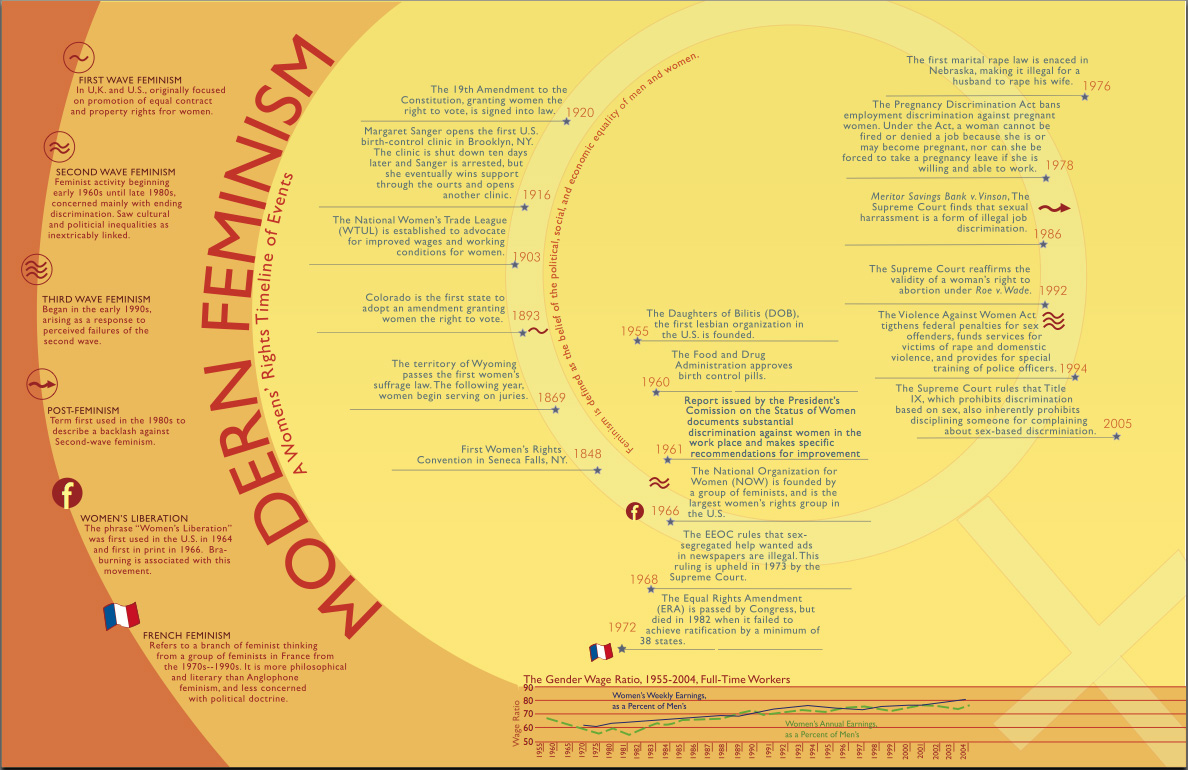Knellwolf, Christa. “The History of Feminist Criticism.” Twentieth-Century Historical, Philosophical and Psychological Perspectives edited by Christa Knellwolf and Christopher Norris. The Cambridge History of Literary Criticism Vol. 9. Cambridge UP, 2007, pp. 193-205. Cambridge Histories Online.
Knellwolf’s article is a good starting place to get an overall sense of the history of feminism and an early idea about feminist theory, and since my background has been creative writing, which incorporates creative writing theory, it’s a good place for me to begin.
Knellwolf’s history begins at the origin of the word feminism in the 1890s, and she characterizes it as “a significant historical moment when there was an urgent need to name the activities of the women’s movement” and makes clear at the outset there exists an “insidious power of literature to propagate views about women’s inferiority” (193). From there, she provides an historical account of the progression of feminism including first and second wave feminism, feminist theory, women’s writing, and feminist literary theory. Knellwolf discusses some of the major figures leading up to feminism and many of the major feminist figures such as Virginia Woolf, Simone de Beauvoir, Betty Friedman, Kate Millett, Sandra Gilbert, and Susan Gubar. Much of the article is focused on the feminists’ efforts to gain equality and concerns about misogyny and the patriarchal structure of society which is so entrenched that “women’s inferiority is ingrained at the very structural levels of syntax and grammar” (201).
While Knellwolf covers the rise French feminism and points out “they alienated women who felt that this position, the French feminist embrace of the language of irrationality and the concept of difference, was a stab in the back to the longstanding struggle to have women’s rationality recognised” (200), she minimizes some of the historical struggle within and opposition to feminism, particularly those struggles toward the end of second wave feminism, like the rise of men’s rights groups and anti-feminist efforts of Phyllis Schlafly, that produced the kind of feminism we see today which is more inclusive of men, and she doesn’t quite bring us to the present 2007 moment. And notably absent is male reaction, including their reaction to changes in the literary canon, to this seemingly seismic shift in women’s demands for equality and freedom. She does point out that Audre Lorde, concerned that the focus of feminist effort was on white women, “wrote an open letter to Mary Daly, criticising her for patronising black women and reducing them to the role of powerless victims” (202), and she does mention “the attempt by mainstream feminists to ignore lesbians” (203). However, in the instances where she indicates strife within feminism the struggle is minimized. Based on the nature of Cambridge histories, this is unsurprising; however, at the conclusion of her history, she suddenly and awkwardly becomes a champion of feminism and includes a plea:
“While feminism needs to pay attention to the diversity between women world-wide, it also needs to respond to a situation in which fundamentalist governments, for instance, seek to remove women from education or to restrict them to jobs of low esteem. An immediate engagement with such issue may create a solidarity which enables women to speak out against oppression” (205).
That aside, Knellwood convers a lot of ground in such a short article, and she covers some of her topics in more depth, like Gilbert and Gubar’s The Madwoman in the Attic, French feminism, and gender identification, among others.
Cavallaro, Dani. French Feminist Theory. London; New York: Continuum, 2003. WordPress. https://caringlabor.files.wordpress.com/2012/09/french-feminist-theory-dani-cavallaro.pdf. Accessed Sept. 2016.
“Christa Knellwolf King.” LinkedIn. https://www.linkedin.com/in/christa-knellwolf-king-972a19122. Accessed Sept. 2016.
“Modern Feminism: A Women’s Rights Timeline of Events” flickr. http://farm4.static.flickr.com/3226/2999672841_c96548854b_o.jpg. Accessed Sept. 2016.
“Phyllis Schlafly (1924-).” National Women’s History Museum. https://www.nwhm.org/education-resources/biography/biographies/phyllis-schlafly. Accessed Sept. 2016.


